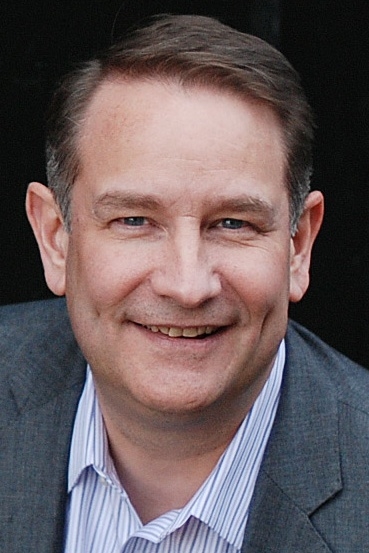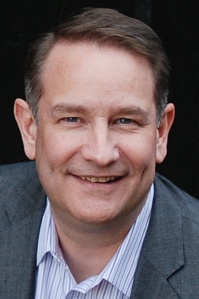I recently attended Money2020 in Las Vegas to hear directly from some of the “Robo-advisors” themselves. Most of the conference was focused on new technologies in payments and e-commerce, but one session “Emerging Wealth Management Solutions” featured Personal Capital CEO Bill Harris, SigFig CEO Mike Sha, LearnVest CEO Alexa von Tobel and Asset Vantage CEO Sunil Dalal.
One of the most surprising things from the session was that Harris, Sha and von Tobel all felt strongly that by 2020 the majority of wealth management will still involve real live wealth managers. Harris agreed to that statement as a ‘5’ on a scale of 1 to 5, and von Tobel ranked it as a ‘6’. SigFig’s Sha answered ‘5’ for high net worth investors, but ‘2’ for the mass market (meaning lower advisor involvement in the future).
Also notable was the fact that despite all of the firms’ heavy investment in technology, that was not what the panelists focused on in their discussion. At least not in the context of better trading algorithms or more sophisticated asset allocation models. Instead, they focused on how they deploy technology to reduce investor expenses and overcome the common failures of human behavior.
In other words, some of the same things that any good advisor should be focused on in their own practice.
Weight Watchers for the Financial Space
LearnVest’s von Tobel said that “Money is 10% math, 90% emotion”, and described her firm as “Weight Watchers for the finance space”. I like that analogy because the basic formula to lose weight is deceptively simple—eat less and move more.
Yet, people spend billions a year on gym memberships, workout gear and diet books. And yes, on trading advice, financial plans and investment seminars, too. All of the gadgets and bells and whistles are alluring, but the basic formula for growing wealth is simple too—spend less and save more.
Setting aside Asset Vantage’s Dalal, whose firm has a different hardware and subscription driven model (and who was less optimistic about the future role of advisors), the rest of these disruptive asset managers are all RIAs. They are in the exact same business as many readers of this site. They just have a dramatically different service delivery model, and they have collectively raised over $100 million in capital that is betting that their model wins over the long run.
I believe they will win if they can convince people to actually change their behaviors. They have the advantage of leveraging their technology to give regular feedback at a scale not possible for most individual advisers. The Nike Fuel Band and competitors like fitbit have helped thousands of people tune into their caloric intake and level of activity needed to burn off the excess. Maybe the next generation of financial advisors will be able to help investors avoid costly mistakes in their financial behavior too.
As Personal Capital’s Bill Harris put it,
“The biggest problem is inertia, and technology alone won’t help that.”
One of the most surprising things from the session was that Harris, Sha and von Tobel all felt strongly that by 2020 the majority of wealth management will still involve real live wealth managers. Harris agreed to that statement as a ‘5’ on a scale of 1 to 5, and von Tobel ranked it as a ‘6’. SigFig’s Sha answered ‘5’ for high net worth investors, but ‘2’ for the mass market (meaning lower advisor involvement in the future).
Also notable was the fact that despite all of the firms’ heavy investment in technology, that was not what the panelists focused on in their discussion. At least not in the context of better trading algorithms or more sophisticated asset allocation models. Instead, they focused on how they deploy technology to reduce investor expenses and overcome the common failures of human behavior.
In other words, some of the same things that any good advisor should be focused on in their own practice.
Weight Watchers for the Financial Space
LearnVest’s von Tobel said that “Money is 10% math, 90% emotion”, and described her firm as “Weight Watchers for the finance space”. I like that analogy because the basic formula to lose weight is deceptively simple—eat less and move more.
Yet, people spend billions a year on gym memberships, workout gear and diet books. And yes, on trading advice, financial plans and investment seminars, too. All of the gadgets and bells and whistles are alluring, but the basic formula for growing wealth is simple too—spend less and save more.
Setting aside Asset Vantage’s Dalal, whose firm has a different hardware and subscription driven model (and who was less optimistic about the future role of advisors), the rest of these disruptive asset managers are all RIAs. They are in the exact same business as many readers of this site. They just have a dramatically different service delivery model, and they have collectively raised over $100 million in capital that is betting that their model wins over the long run.
I believe they will win if they can convince people to actually change their behaviors. They have the advantage of leveraging their technology to give regular feedback at a scale not possible for most individual advisers. The Nike Fuel Band and competitors like fitbit have helped thousands of people tune into their caloric intake and level of activity needed to burn off the excess. Maybe the next generation of financial advisors will be able to help investors avoid costly mistakes in their financial behavior too.
As Personal Capital’s Bill Harris put it,
“The biggest problem is inertia, and technology alone won’t help that.”
JP Nicols, CFP®
Internationally recognized as a leading voice for innovation, strategy and leadership for the future of financial services, JP combines 20+ years of experience with a fresh perspective on combining high-tech with hightouch. His work has been featured in some of the industry’s top publications, including American Banker, BAI Banking Strategies and Investment News.
He is the founder and CEO of Clientific, and the co-founder of the Bank Innovators Council.
www.clientific.net
www.bankinnovatorscouncil.org/
Internationally recognized as a leading voice for innovation, strategy and leadership for the future of financial services, JP combines 20+ years of experience with a fresh perspective on combining high-tech with hightouch. His work has been featured in some of the industry’s top publications, including American Banker, BAI Banking Strategies and Investment News.
He is the founder and CEO of Clientific, and the co-founder of the Bank Innovators Council.
www.clientific.net
www.bankinnovatorscouncil.org/
Les médias du groupe Finyear
Chaque jour (5j/7) lisez gratuitement :
Le quotidien Finyear :
- Finyear Quotidien
La newsletter quotidienne :
- Finyear Newsletter
Recevez chaque matin par mail la newsletter Finyear, une sélection quotidienne des meilleures infos et expertises de la finance d’entreprise et de la finance d'affaires.
Chaque mois lisez gratuitement :
Le magazine digital :
- Finyear Magazine
Les 6 lettres digitales :
- Le Directeur Financier
- Le Trésorier
- Le Credit Manager
- Le Capital Investisseur
- GRC Manager
- Le Contrôleur de Gestion (PROJET 2014)
Un seul formulaire d'abonnement pour recevoir un avis de publication pour une ou plusieurs lettres
Le quotidien Finyear :
- Finyear Quotidien
La newsletter quotidienne :
- Finyear Newsletter
Recevez chaque matin par mail la newsletter Finyear, une sélection quotidienne des meilleures infos et expertises de la finance d’entreprise et de la finance d'affaires.
Chaque mois lisez gratuitement :
Le magazine digital :
- Finyear Magazine
Les 6 lettres digitales :
- Le Directeur Financier
- Le Trésorier
- Le Credit Manager
- Le Capital Investisseur
- GRC Manager
- Le Contrôleur de Gestion (PROJET 2014)
Un seul formulaire d'abonnement pour recevoir un avis de publication pour une ou plusieurs lettres
Autres articles
-
Coinbase et Visa, un partenariat pour des transferts en temps réel
-
Brilliantcrypto, la nouvelle aventure play-to-earn basée sur la blockchain Polygon, arrive sur Epic Game Store
-
Nomination | Truffle Capital promeut Alexis Le Portz en qualité de Partner
-
IPEM Paris 2024 : 5500 participants au Palais des congrès
-
Pomelo annonce une Série A à 35 millions de dollars menée par Vy Capital






